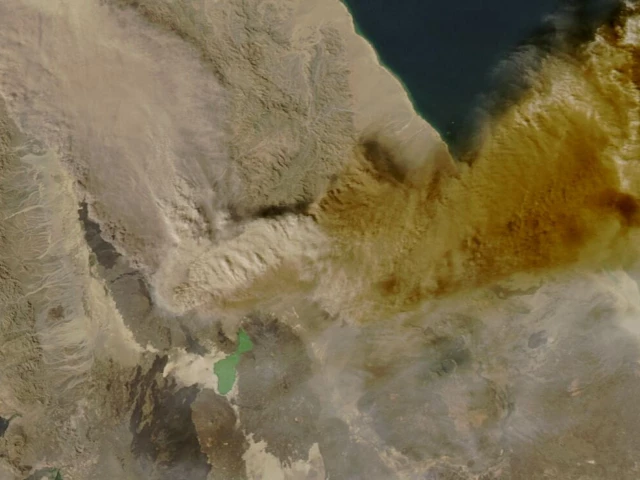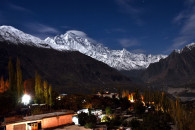Pakistan skies 'completely clear' after Ethiopian volcanic eruption: PMD
Situation persisted for 18 to 20 hours before beginning to stabilise, effects never reached ground, says spokesperson

Pakistan faces no threat of atmospheric pollution from the volcanic eruption in Ethiopia, the Pakistan Meteorological Department said on Tuesday, assuring that the ash cloud remains confined to high altitudes and poses no risk to public health in the country.
Deputy Director and PMD spokesperson Anjum Nazir Zaigham said the eruption at the Hayli Gubbi volcano — reported by the Toulouse Volcanic Ash Advisory Centre (VAAC) — had sent massive plumes into the upper atmosphere after it erupted on Sunday for the first time in nearly 12,000 years.
In response, the PMD issued an aviation watch alert, warning that domestic flights cruising around 35,000 feet and international flights operating between 40,000 and 45,000 feet could face engine hazards due to the ash cloud. Authorities, he added, were actively monitoring its trajectory.
Issuing a detailed statement on Tuesday, Zaigham said the volcanic plume initially moved eastward, spreading over Oman, Yemen, and the Arabian Sea before extending towards southern Pakistan and India.
BREAKING: Significant Eruption Reported in Afar, Ethiopia 🌋
— Volcaholic 🌋 (@volcaholic1) November 23, 2025
Urgent reports this morning indicate a significant volcanic explosion in the Afar region, either at Ali Bagu (Amaytole) or possibly Erta Ale itself. Early information suggests the eruption may be located between… pic.twitter.com/ChwmyT9vDZ
The PMD issued three consecutive Volcanic Ash Advisories (VAA) — the first time in Pakistan’s history that multiple advisories were released in succession — after receiving a mid-flight report from an aircraft south of Gwadar, roughly 60 nautical miles away.
He said the situation persisted for nearly 18 to 20 hours before conditions began to stabilise. The volcanic remnants, however, were detected only in the upper atmosphere at around 45,000 feet or higher, he added.
“These effects never reached the ground,” Zaigham said, adding, “With wind speeds of around 20 kilometres per hour, the plume has now dissipated. It is entirely incorrect to suggest that Pakistan’s airspace could become polluted.”
He reiterated that skies over Pakistani are now 'completely clear', noting that any air-quality concerns would only arise if an eruption occurred in a country located closer to Pakistan. Zaigham reaffirmed that there is no possibility of atmospheric contamination from the Ethiopian eruption.




1725254039-0/Untitled-design-(24)1725254039-0-208x130.webp)
















COMMENTS
Comments are moderated and generally will be posted if they are on-topic and not abusive.
For more information, please see our Comments FAQ